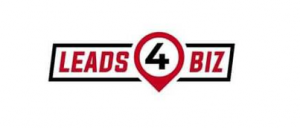
5 costs start-ups don’t need!
As a UK Government Registered small business mentor I always like to find out what startup expenditure new business people are considering, it’s a good exercise to see what they consider is necessary and what is not.
1.Do you really need an office?
This may fly straight into the face of many, and one thing I have asked myself time and time again is what new startup has to have a full-time office in a swanky expensive serviced office block?
The only business I can think of that needs space is someone who has got enough advanced orders for a product that needs manufacturing and if you have a warehouse you will probably have an office in the building, or a corner you can box off, but I am sure you started in your garage or shed with your prototype and then got in your car which was a kind of office when you started and took the prototype to people.
Offices are not cheap, sure they are kudos for your business, but ask yourself; is having an office really an income generating activity? If not, wait until you have enough staff that having an office actually helps business, by being the one place where you all meet up together and clients are visiting every day until then work from home!

Everyone can work from home now, computers, printers are not the price of rockets anymore, and there are coffee shops that are the price of a coffee for free Wi-Fi, open business hours and then some, and you won’t get an electricity bill from a coffee shop!
Always offer to go to your client’s offices, they paid for it not you! They appreciate your time to go see them but at the end of the day as long as they are not the other side of the country your costs to go see them are much less than their cost per day for their office.
2.Company cars.
OK If you are a Taxi driver there is no argument there. If you are a freelance courier or Trucker, your cab will be your main expenditure. Apart from the transport industry and construction, do you really need a car? Well in places like UK where public transport is one of the highest in the world, and you need to travel every day, it will take a few good calculations to work out whether you are better off driving to and from your customers. You must take into consideration all costs for your car, Business Insurance if you are using your vehicle for work, servicing, fuel etc. V the cost of public transport, especially if could you get cheap off-peak fares? Research pays dividends here!
3.A legit company
Now some of you will be like WHAT? Are you saying I should operate under the radar and dodge the taxman? Nope what I am saying is even the taxman recognises there is always the startup period in any business, you can’t possibly call yourself a business until you have enough customers buying from you and you are making a good profit, you are no use to the taxman until then.
I see so many people pay for a limited company before they have gotten their product or service right, they labour under the misapprehension that having Limited after the business name will make them more desirable to deal with. Never once since 1983 when I started working, has anyone of the thousands of business people that I met have ever once asked me do I have a legit company registered! They are more interested in finding out if what I offer helps them in any way. It’s up to accountants to do those kind of checks, and I guarantee you if they really want what you are selling then they will find a way around buying it even if you are not a registered entity as yet.
Wait until you are profitable before getting a business registered.
3B.Limited Companies Need An Accountant!
This is the line I was fed when I had my business in UK, I was just profitable when I started then I was told I needed an accountant at nearly 1000 British pounds a year, I took a massive hit to my bottom line. You can actually do self-assessment yourself, but if you hate math like I do, then perhaps the accountant is a good idea, but failing that, there are probably people who could do self-assessments for the taxman and actually enjoy doing them for /with you and do them well and cost a lot less than an accountant. You will only really see how good UK accountants really are only when you get your bill for your tax.
4. A really fancy website
So often I ask a company what they paid for their website and I just wish I had the balls to charge what some of these companies have the gall to charge. The reason I am there in the first place is to find out why this amazing looking website is not doing what it promised as in to get 1000’s of new visitors and generate leads for the company. Then I take a quick look at the Search Engine optimisation of the site and it quickly dawns on me that although the site looks fantastic it is not even ranking on page ten of Google, the main search engine.
In my experience web designers are artists, they know every single font and codes of colours, the can see the subtle difference between 0.2mm’s on the border of your logo can make to the overall appearance of a website, but few if any I have met know anything about SEO.
Start with a simple Word Press website that you can learn to get going in an hour after a few free Google lessons. I have trained many people to get a website up, how to add relevant keywords and optimise images in a 2 hour training session costing less than 100 USD! When business profits starts coming in, get a web designer in to spruce it up for you. but start from the basics and work up don’t pay a fortune for a really fancy bells and whistles website when your startup cash could be better spent on buying petrol or a train ticket to see that potential client!
5.Branding and Advertising
After being in the sales business for 25 years and now marketing for ten years I can honestly say most people in business don’t understand the difference between branding and advertising.
Branding is how people feel about your business name, your company as a whole, and whether they trust your brand name.
Advertising is telling people what your business sells and the features and benefits of those products and services.
Many new startups think that digital media will be their answer to cost effective sales. They have all been fed the line that the small startup can go viral really easily and be an overnight success on social media platforms, but sadly what most actually do unbeknownst is to start their life long foray into branding their business and when they see no immediate profits they give up due to cash flow.
The free organic reach for business on the big platforms like Facebook twitter and LinkedIn has all but disappeared and you need some branding budget now to be seen by even a small audience.
Sure, many still go viral, if you have some human story that touches hearts and is novel and entertaining and the types of people that can think up these kinds of stories are on massive salaries with very large corporations and are called influencers or Key Opinion Leaders.
Understand the difference between branding and advertising and know your branding budget is eternal and is of a karmic value to you and learn how not to waste massive sums on social media advertising especially when you are just starting.
Better, in the beginning of your business, to find a lead provider, a person who is in a peripheral industry who can introduce you to warm targets, or an affiliate that supplies you clients who have expressed an interest in what you sell, this activity cuts out so much lead generation activities that cost time and money.
Leads are so much more profitable for small and large businesses alike, and are considered your holy grail of business generation activities and you must be all over them as soon as you get the information.







